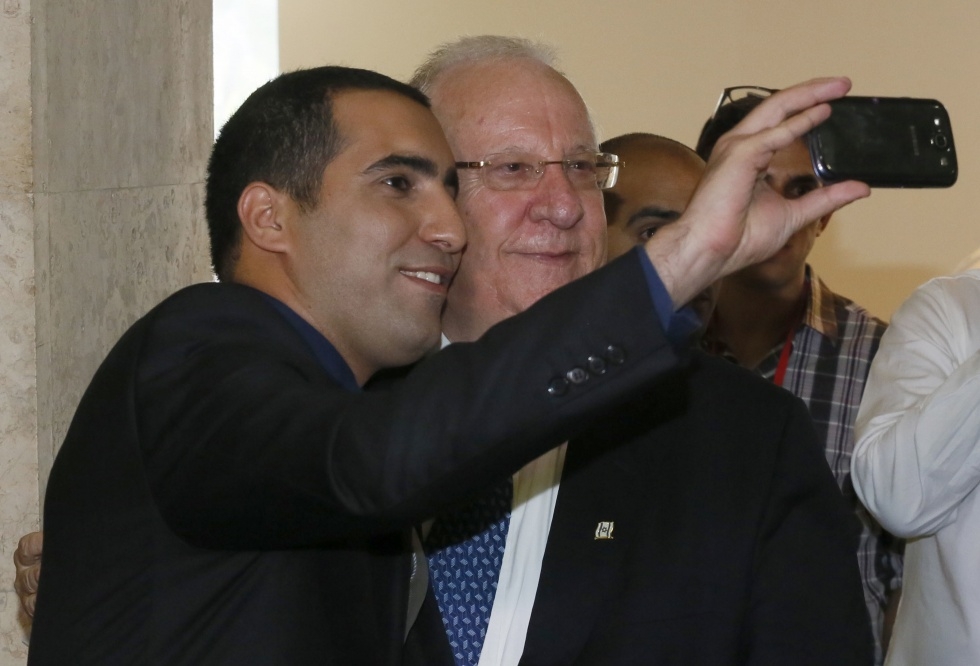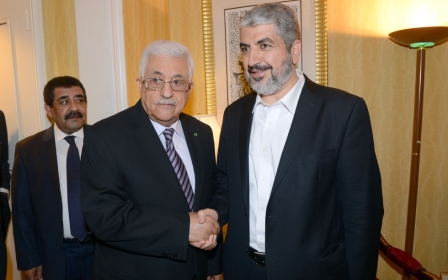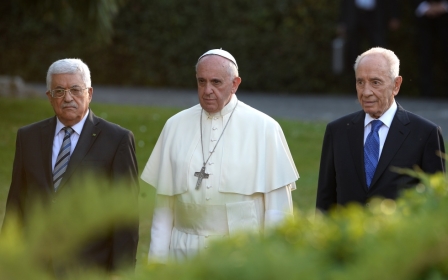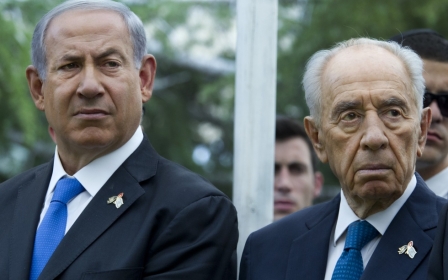Israel elects hawk Rivlin as 10th president

Israel's parliament on Tuesday elected Reuven Rivlin, a far-right member of the ruling Likud party, to be the nation's 10th president when Shimon Peres steps down next month.
Known for his affable character and quirky sense of humour, the 74-year-old former parliamentary speaker will take over as head of state when Peres retires at the end of July, drawing a line under what many regard as a golden age of the presidency.
A lawyer by profession, Rivlin has won widespread support from across the political spectrum for his determined defence of democracy and civil rights.
But his political outlook is diametrically opposed to that of Peres, being a firm opponent of a Palestinian state and a keen backer of the settlements.
And he will have a tough act to follow, with Peres's charisma and global standing enabling him to transcend the largely ceremonial position of the presidency and use it to promote a political message of peace.
Announcing the results of a run-off vote, parliamentary speaker Yuli Edelstein said Rivlin had defeated his centrist challenger Meir Sheetrit by 63 votes to 53 in a secret ballot of the Knesset's 120 MPs.
The other three candidates, former politician Dalia Itzik, retired Supreme Court justice Dalia Dorner and chemistry Nobel Laureate Dan Shechtman were all eliminated in a first round of voting.
As the portly, white-haired politician passed through the corridors of the Knesset, MPs and well-wishers pat him on the back, some hugging him, others offering smiles and congratulations in a celebratory atmosphere.
Bitter pill for Netanyahu
In a televised joint news conference, Prime Minister Benjamin Netanyahu, whose bitter dislike of Rivlin made headlines in the weeks running up to the vote, offered Rivlin his congratulations.
"I want to wish you great success," said the premier who had only begrudgingly backed his party's candidate at the 11th hour after his well-publicised and frantic efforts to find an alternative failed.
"You have two main missions facing you: to unite all the people... and to represent Israel to the world," he said.
In an emotional acceptance speech punctuated by puns, but delivered in a voice which at times broke with emotion, Rivlin said he was no longer a man of politics but of the people.
"I am no longer party man but a man of all the people," he said before joining in a champagne toast led by the speaker.
Congratulations poured in.
"Today is a festive day!" said a beaming Naftali Bennett, head of the far-right Jewish Home party who is ideologically very close to Rivlin.
"The Knesset elected the most worthy candidate today," agreed deputy defence minister Danny Danon, also from Likud's far-right flank, describing him as "a true Zionist (and) Jerusalem's biggest supporter".
'Greater Israel's president'
But many Israeli commentators were sanguine about Rivlin's political bent and what he would use the presidency to try to achieve.
"Rivlin is far to the right of the clear Israeli consensus, he is opposed to the two-state solution, he is an out-and-out supporter of the settlement enterprise on both sides of the separation fence," commentator Ben Caspit wrote in Maariv on Tuesday.
"Rivlin won't be the State of Israel's president, but Greater Israel's president," wrote commentator Ari Shavit in Haaretz newspaper last week.
"He will exploit the presidential institution to advance the West Bank settlement project, which he worships, and the one-state solution he believes in," he wrote.
Earlier, MPs had filed up to the front of the parliamentary auditorium in alphabetical order to place a blue envelope into the dark-wood ballot box in public view, the plenum buzzing with chatter as voting took place in a relaxed atmosphere.
Peres, the last surviving member of Israel's founding fathers, is due to wrap up his seven-year term at the end of July, just a week shy of his 91st birthday.
Commentators say his departure is likely to switch the presidency's focus from international affairs to more domestic matters.
New MEE newsletter: Jerusalem Dispatch
Sign up to get the latest insights and analysis on Israel-Palestine, alongside Turkey Unpacked and other MEE newsletters
Middle East Eye delivers independent and unrivalled coverage and analysis of the Middle East, North Africa and beyond. To learn more about republishing this content and the associated fees, please fill out this form. More about MEE can be found here.




